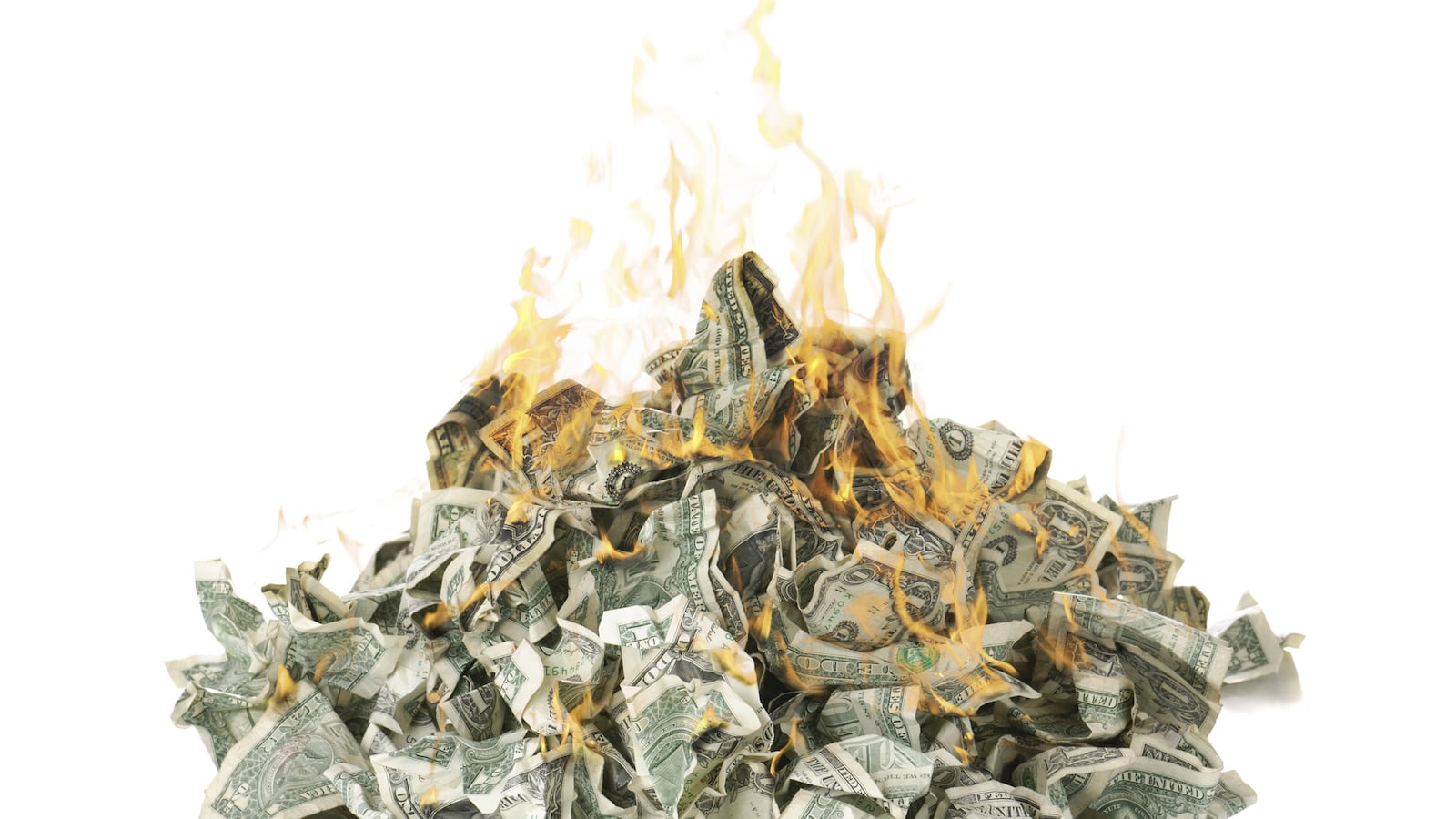“Uncertainty is the enemy of our prosperity,” Mike Pence, then a Republican congressman from Indiana, warned in 2010.

Back then, pleas for “economic certainty” were the Republican mantra as they fought Democratic attempts to return to Clinton-era tax rates for the wealthy. No more. Today, creating stomach-churning economic uncertainty is the GOP’s raison d’être. They were right the first time: Economic security and predictability are critical for economic growth. The lack of it during the last several years—courtesy of House Republicans—has done real damage to the economic recovery.
“The shutdown and the brinkmanship over the debt limit will cost the economy $20 billion in gross domestic product in the fourth quarter,” Mark Zandi, chief economist for Moody’s Analytics, told me in an interview yesterday. “This means GDP growth will be a half a percentage point less than it would have been otherwise.” Goldman Sachs chief economist Jan Hatzius expressed similar concerns in an Oct. 14 note citing the “rise in uncertainty” and predicted a “downside risk of around 0.5 points to our forecast of 2.5 percent real GDP growth in Q4.”
“The reason our economy can’t kick into higher gear is because of the uncertainty in [D.C]. Even if you like the changes, the process itself creates angst,” Zandi argued. “The predominant uncertainty is this brinkmanship [over the debt limit]. We need for Washington to get out of the way.”
The deal reached to end the shutdown did nothing to address the albatross of unpredictability. Congress merely agreed to fund the government for another three months, until Jan. 15. Then it will revisit the debt limit in February. It’s the Groundhog Day of governing.
Responding to news of the deal to re-open the government, Gennadiy Goldberg, an economist at TD Securities in New York, told Reuters, “The recovery is on hold for another four months. Hiring and investment decisions that have been plagued by political uncertainty will persist, and the hoped-for shift higher in economic momentum will be delayed.” Said Zandi, the deal “doesn’t solve our problems. We are stuck in a very uncertain environment that will intensify. Washington is going to remain a weight on the economy for at least another three months.”
It’s no wonder that, in a recent Public Policy Polling survey, Americans expressed a higher approval of hemorrhoids, toenail fungus and potholes than for Congress.
The unstable environment is even starting to scare international investors, who once saw the U.S. as the safest place to put their money. “With each round of brinkmanship, the views [of global investors] are changing,” said Zandi. “People overseas are really concerned about the dysfunctionality of the process and that it could impair a strong economy. You are hearing calls to diversify away from United States.”
A Federal Reserve report on economic conditions released Wednesday offered a cautiously optimistic outlook. Consumer spending is up, car sales continue to be strong, business spending and payrolls are rising, manufacturing activity is growing, the travel and tourism sector has expanded in most areas, and residential construction is continuing to increase at a moderate pace. But hanging menacingly over the economy, it reported, is “an increase in uncertainty due largely to the federal government shutdown and debt-ceiling debate.”
Because of the endless dysfunction in Washington, Zandi says he has scaled back his expectations for our elected officials. Achieving entitlement and tax reforms are critical, but probably beyond the capabilities of this Washington crew. “I fear that is a bridge too far at this point. If they try to cross and fail to make it over, they could take the rest of us with them. If they can just increase the debt limit and keep the government open… the economy will take off. If I had my druthers, I’d rather they simply follow current law rather than take us down the dark road they just took us down.”
Though Zandi believes there are policy prescriptions to help boost the economy, he’s all but given up hope for that. If the only option is the economic roller coaster of the last few years, he’d rather that government policy was just neutral.
“The key to [a stronger economy] is to have Washington do nothing,” he concluded. “[Let’s have] no change at all for four years and… reconvene and see where we are and then at that point we reevaluate. All Washington has to do is go away and we will be fine.”





